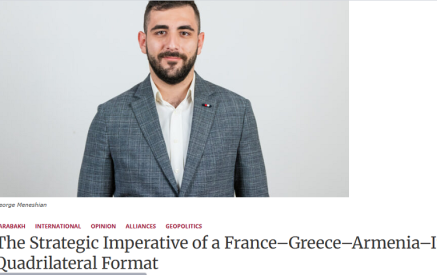The subject of “Aravot” online “Face to Face” talk show is discussed by economist Vilen Khachatryan and Director of the Center for Globalization and Regional Cooperation Stepan Grigoryan.
Aram Abrahamyan – On Sunday, the extreme left-wing “Syriza” political party came to power in Greece with the following slogans: no economic management regime, no cut off social expenses, and no write off the 320 billion euro debt. What does this mean?
Vilen Khachatryan – Economically, I will try to interpret as follows: first, I want to mention one of the reasons for the victory of “Syriza”. Europe has reached the point that based on economic factors, changes are taking place in the political arena, and these events became the basis of, so to speak, crushing victory of “Syriza”. I must say that the economic factor underlies these events. What does it mean to refuse paying off the debts? The situation was as such that the European Commission, the European Central Bank and the International Monetary Fund lend the economy of Greece since 2008, which encounter the counter to a situation that the country is unable to pay off the debts, and what remains for Greece is to announce either default or continue, so to say, tightening the belts, or severe economic policy, to which the whole population of Greece is against.
- A. – When lending, were Greeks against it and they were forced to take the loan?
- Kh. – There were countries that were against accepting it, including, in some cases, also the Greeks. For example, the Irish lending was taking place just on this background.
- A. – Despite their will?
- Kh. – And by their will too, in other words, by persuading or putting debt-related problems, even with grace terms, in other words, the credit was given to them. For Greece, “Syriza” was against the crediting and the regime. We can say that under this situation, the economy appears in a closed chain and does not have other mechanisms to overcome the crisis other than withdrawal from the euro zone, pass to dirhams, and use the mechanism of devaluation through drachma or print money, that is, to deviate from the common European policy.
- A. – Is it possible? In other words, if Greece moves on by this scenario, the EU prospects are going to be pretty vague.
Stepan Grigoryan – It depends how far they will go. It is clear that the European Union has a sort of policy that might be liked or disliked. This depends on the fact that it is important for them that the public expenses be cut off and you live in compliance with your potentials. Here, there are actually disputable questions. A question can be raised, whether it is ideal or not. But if Greece goes too far into these claims, it is obvious that automatically, it will be the state that can withdraw from the EU. I do not think they will get to it, but the slogans that we hear allow thinking so. We should not forget that the impact of socialistic forces in Greece has always been very big.
Read also
- A. – I’m giving you money, be so kind to cut off the expenses so that I will be sure that you will pay off the money. Isn’t it fair?
- G. – I think that the lender in the end has the right to tell the conditions. You may refuse. It is very interesting in Greece. They have even a 14th salary, some big-digit allowances. Now, let them try solve the problem by these new slogans.
The complete discussion below:
Prepared by ARAM ABRAHAMYAN
“Face to Face” talk show series are released by the Open Society Foundations- Armenia. The views and analyzes found in this broadcast express the opinions of the participants, and are not approved by the Open Society Foundations-Armenia, or its Board. This broadcast is made available thanks to comprehensive financial support by the Open Society Foundations-Armenia, under the mass media support program, grant No 18624.






















































